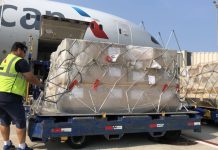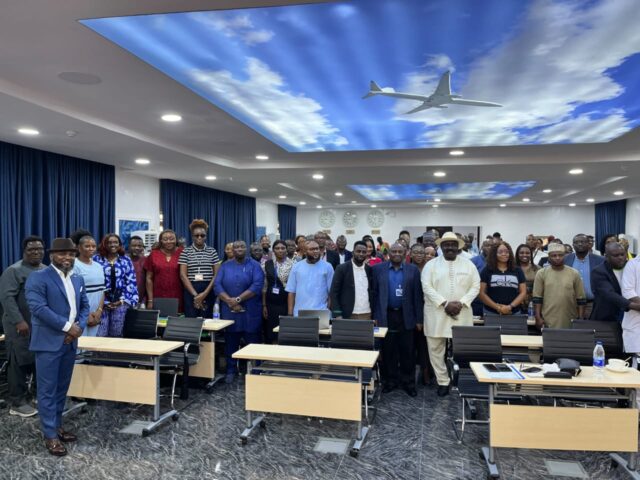The Nigeria Civil Aviation Authority (NCAA) is undertaking a comprehensive digital transformation of its operations, aiming to enhance regulatory oversight, streamline processes, and significantly improve the passenger experience within the aviation sector. This bold initiative represents a landmark shift in how the NCAA manages its responsibilities, marking a new era of efficiency and transparency in Nigeria’s aviation industry.
The digitalisation effort will overhaul various facets of the NCAA’s operations, including approvals, licensing, recertification, and the resolution of passenger complaints. The adoption of advanced digital platforms is expected to simplify these processes, offering faster service delivery and greater transparency for both airlines and passengers.
Captain Chris Najomo, the Acting Director-General of the NCAA, made this announcement during the launch of a training program for the newly developed Consumer Protection Portal. This portal, central to the NCAA’s digitalisation strategy, is designed to address passenger complaints more efficiently and to monitor airline performance in real-time.
Speaking at the event, Captain Najomo highlighted the importance of this digital shift in addressing the challenges faced by both passengers and airlines. “The new portal will not only expedite the resolution of passenger complaints but also serve as a critical tool for evaluating the performance of both domestic and international airlines operating in Nigeria,” he stated.
He further explained that the training program is essential for equipping NCAA staff and airline personnel with the skills necessary to navigate the new digital landscape. This preparation is crucial for managing common issues such as flight delays, cancellations, and other service disruptions that have long plagued the industry.
The digital transformation, which began two years ago with the implementation of the Regulatory Safety Oversight Software (EMPIC), is now in its advanced stages. The new software system will revolutionize the NCAA’s operations, from the Air Operator Certificate (AOC) system to certification, recertification, and licensing processes. “We have made significant progress, and with the deployment of this system, our entire operation will be digitalized,” Najomo said.
In addition to the digitalisation efforts, Captain Najomo acknowledged the proactive role of the Minister of Aviation, Mr. Festus Keyamo, in supporting local airlines in acquiring new aircraft. The Minister has been in discussions with major aircraft manufacturers like Boeing and Embraer to secure dry leasing options, which are expected to alleviate fleet shortages and reduce flight delays and cancellations.
“The Minister has been instrumental in these negotiations, and we anticipate that these efforts will soon yield results, enabling our airlines to acquire the necessary aircraft to enhance their operations,” Najomo stated.
The NCAA is also fine-tuning a policy requiring Nigerian airlines to maintain a minimum of six aircraft in their fleet by 2025. This regulation aims to strengthen the operational capacity of airlines, with provisions to accommodate the varying needs of different carriers, particularly those operating regional routes.
Regarding the Consumer Protection Portal, Najomo described it as a critical tool for real-time monitoring of airline performance. The portal will provide on-time oversight of passenger handling processes, from check-in to disembarkation. The data collected will be made publicly available on the NCAA’s official website, allowing consumers to make informed decisions based on the performance of different airlines.
“This portal is a powerful tool for both regulation and consumer empowerment,” Najomo said. “It will provide a clear picture of which airlines are excelling and which need improvement, based on real-time performance data.”
Najomo emphasized the importance of the ongoing training program in ensuring a smooth transition to this new digital era. By equipping all stakeholders with the necessary knowledge and skills, the NCAA is laying the foundation for a more efficient, transparent, and consumer-friendly aviation industry.
“The success of this digital transformation depends on everyone being prepared to embrace it,” Najomo concluded. “With the training in place, we are confident that this new era of digital operations will bring significant benefits to the entire aviation community.”
















